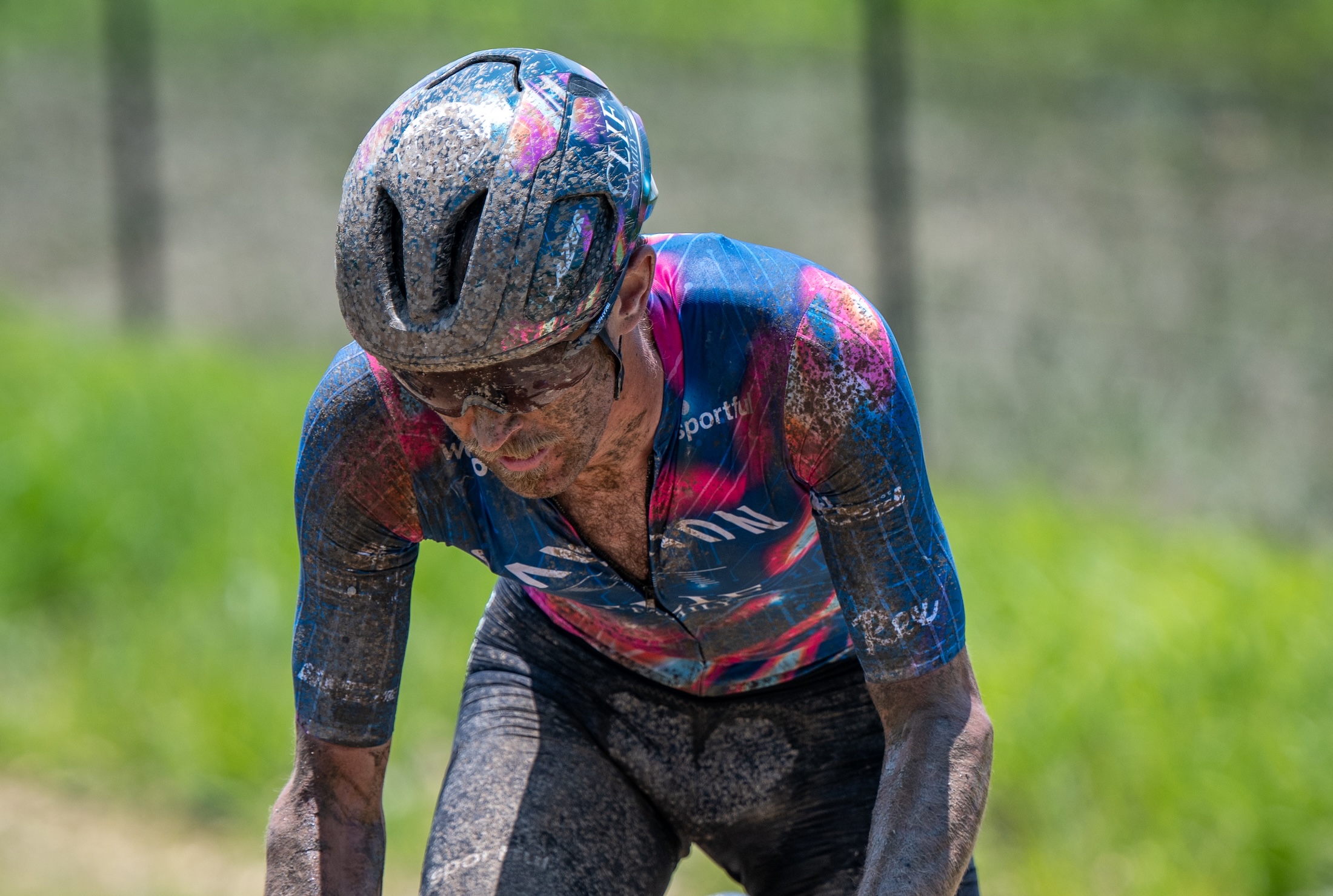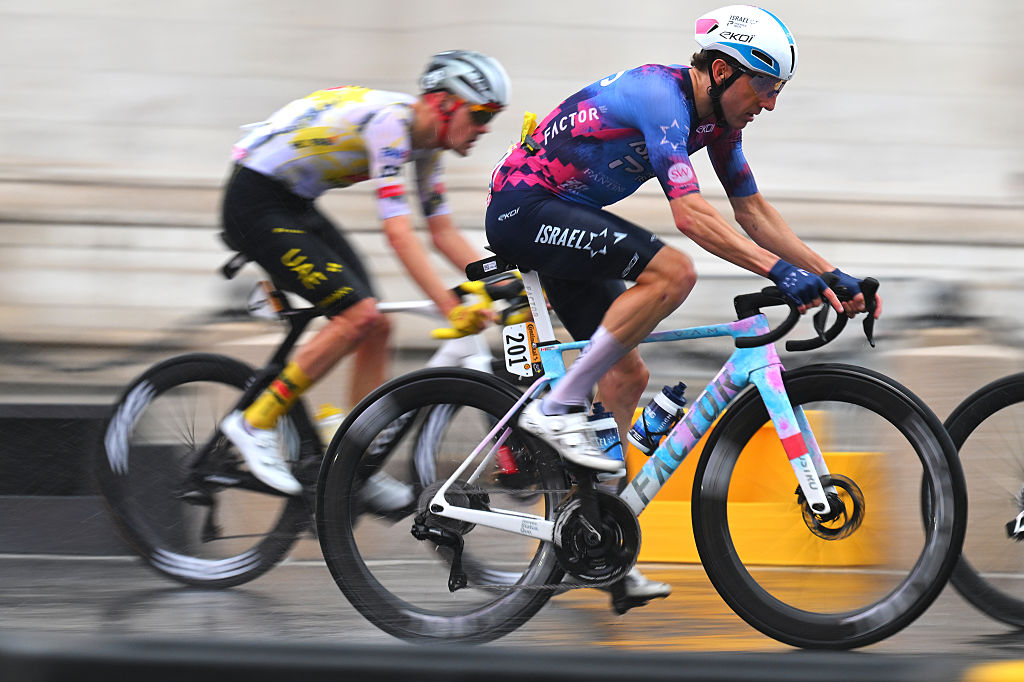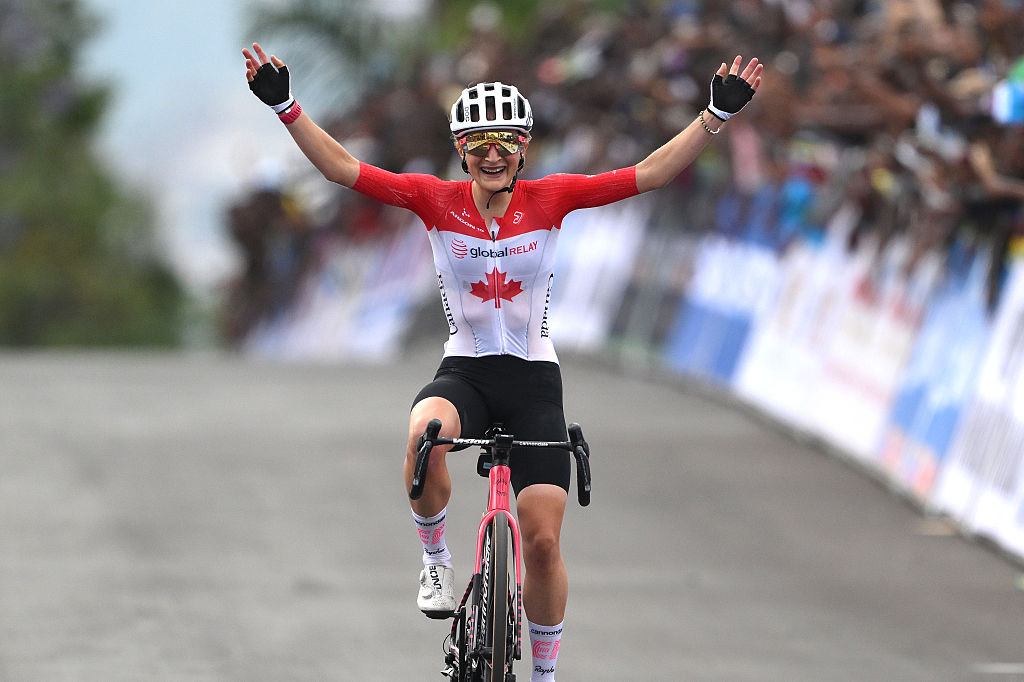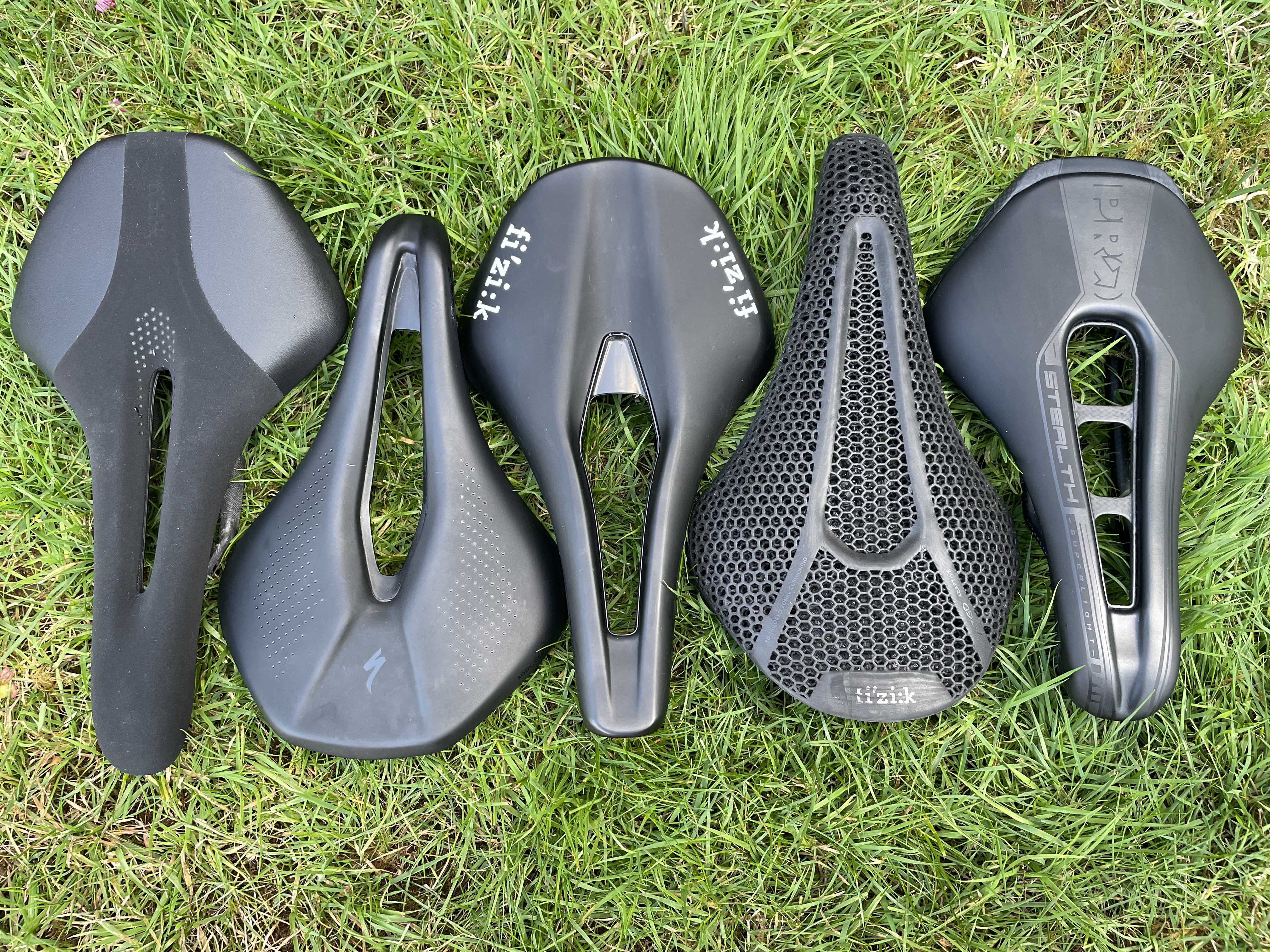Vuelta a España favourites back in action on Javalambre ascent - stage 6 preview
August 31: La Vall d'Uixó to Observatorio Astrofísico de Javalambre, 183.1km
The latest race content, interviews, features, reviews and expert buying guides, direct to your inbox!
You are now subscribed
Your newsletter sign-up was successful

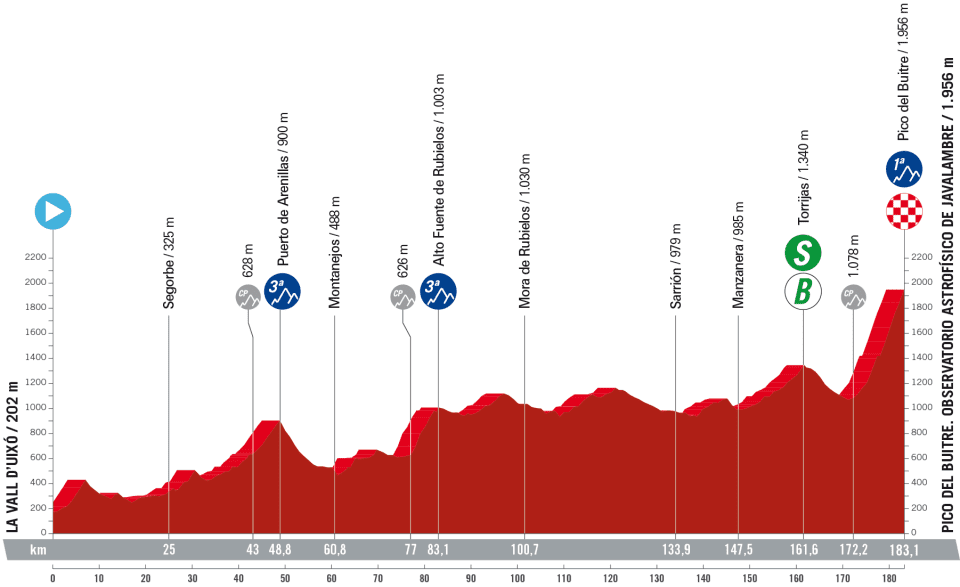
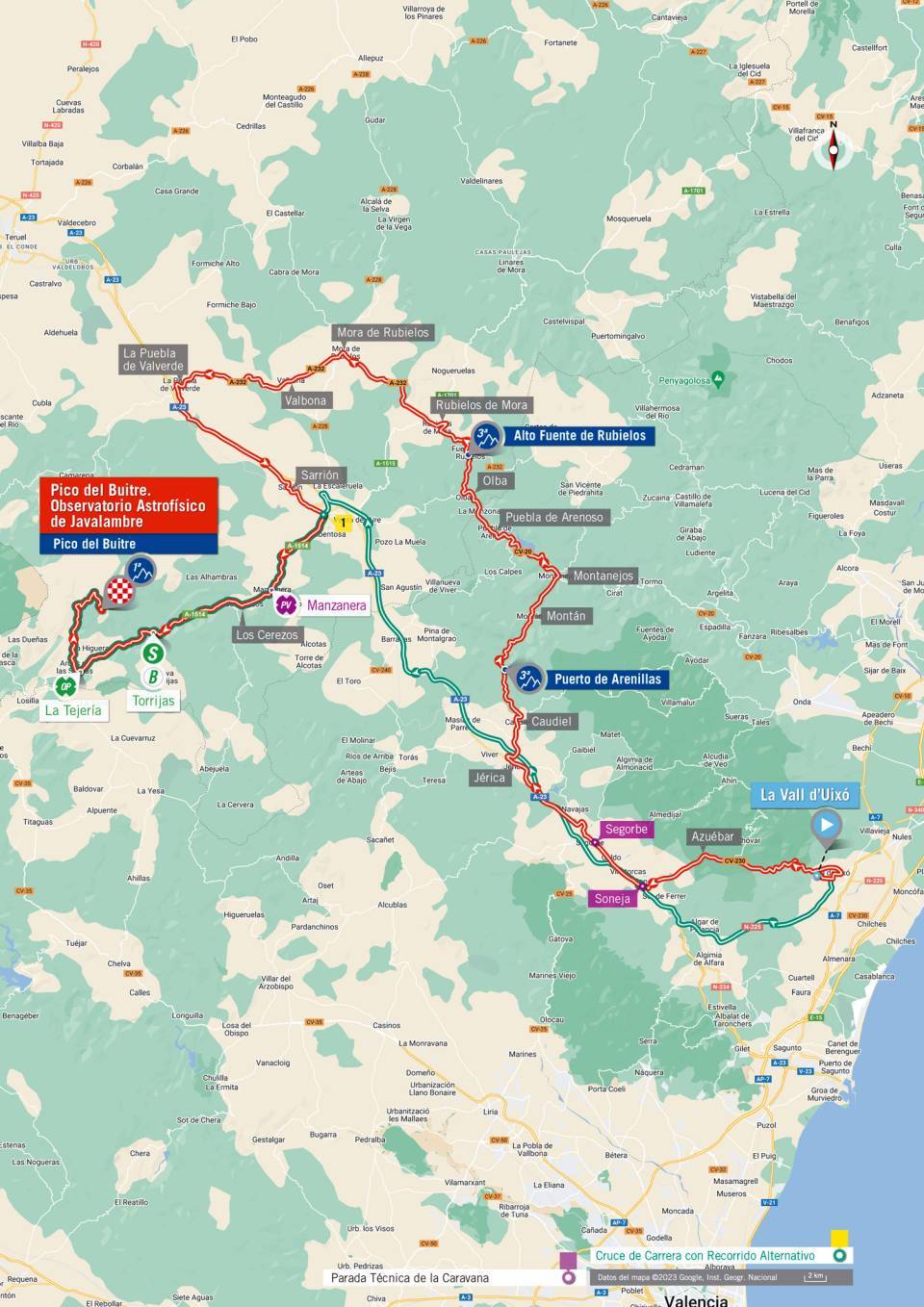
Stage 6: La Vall d'Uixó to Observatorio Astrofísico de Javalambre
Date: August 31
Distance: 183.1km
Stage type: Mountain
Stage 6 at the Vuelta a España marks the second mountain finish in the opening week of racing, this time at the Observatorio Astrofísico de Javalambre, where Vuelta leader Remco Evenepoel (Soudal-Quickstep) may try to put more time into his rivals, give the jersey away to the breakaway, or both.
The overall classification contenders are already be familiar with one another's strengths on the ascent after already contesting a summit finish on stage 3 to Arinsal in Andorra, where Evenepoel won the dash to the top ahead of Tour de France winner Jonas Vingegaard (Jumbo-Visma) and took an early lead in the GC.
Stage 6 will offer the Belgian champion and his rivals another chance to test their legs in the mountains as the race begins at La Vall d'Uixó with the first two categorised ascents at Puerto de Arenillas (5.5km at 4.7%) and Alto Fuente de Rubielos (6.2km at 6%).
The latest race content, interviews, features, reviews and expert buying guides, direct to your inbox!
The peloton then travels along a predominantly low-grade uphill toward the final ascent of the day, cresting climbs at Manzanera then Torrijas, which is 13km at 2.7%, and hitting the base of the 11km climb to the Observatorio Astrofísico de Javalambre.
The haul to the finish line is demanding, with an average grade of nearly 8% and is surely going to create the first big separations among the overall contenders.
The ascent was first used back in the 2019 edition of the Vuelta a España and won by Ángel Madrazo of Burgos-BH.
Javalambre
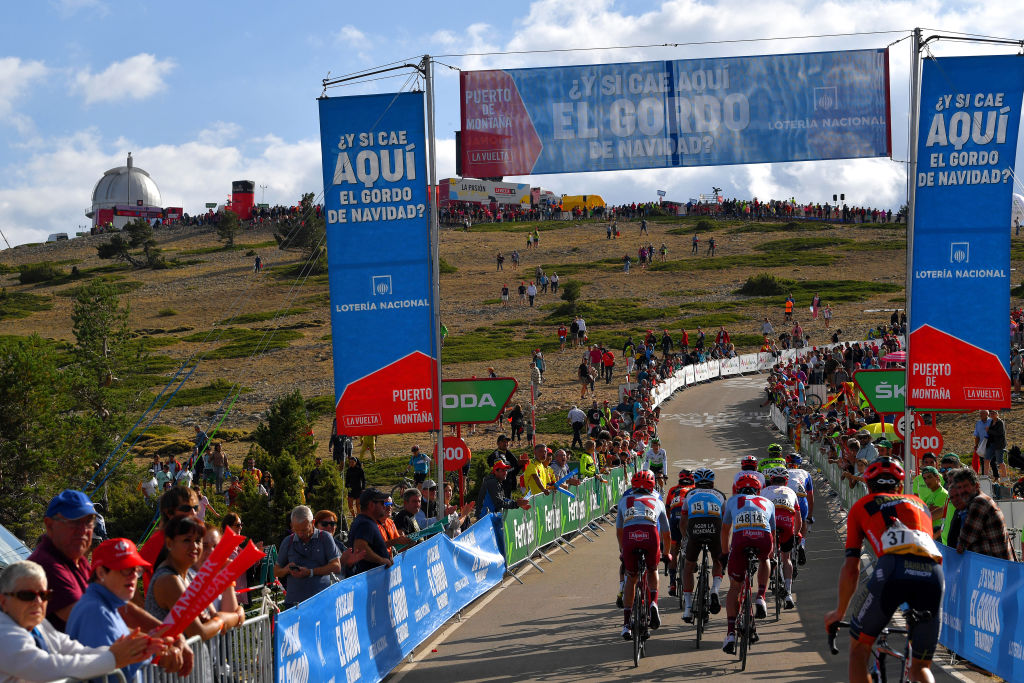
A remote climb in one of Spain's most remote regions, there is only one reason for the road to Javalambre, where the 2023 Vuelta a España has its second summit finish this week: to reach the one building at the top, an astronomical observatory.
The observatory, said to be one of the most important in Europe, is located in Javalambre in the southern sierras of Teruel: an isolated, eerily empty part of Spain so neglected by successive central governments that its dwindling population has created its own regionalist party, Teruel Existe [Teruel Exists].
Regrettable as it is, that decades-long drain on the population of Teruel means minimal nightime light pollution from towns and villages and indirectly creates excellent conditions for seeing the stars. The construction of the observatory is an indirect reason why some terrestrial, two-wheeled stars will tackle the climb of Javalambre.
The Vuelta has already been to Javalambre once, in the first week of the 2019 race. Judging by the events of four years ago when the stage ran through similar rolling but not overly tough terrain before reaching the Javalambre, the 10.8 kilometre category 1 climb could well spark another major GC battle.
In 2019, Angel Madrazo (Burgos-BH), nicknamed El Gorrión [the Sparrow] for his diminutive, bird-like build, soloed from a breakaway to what remains by far the biggest victory of his career ahead of Dutch teammate Jetse Bol. Back in the bunch, the eventual final overall winner Primož Roglič stole a march on almost all his GC rivals, although Miguel Angel López succeeded in regaining the red jersey from previous leader Nicolas Roche.
Roglič's ride on the Javalambre ultimately represented a first big foundation stone for winning his first Grand Tour a few weeks later. As for Madrazo, he talked non-stop for the best part of half an hour in his press conference, and when he finally ended his conversation, he was treated to a rare round of applause by the journalists present.
Whatever the Javalambre ultimately signifies in this year's Vuelta, coming at the end of a rugged day of racing through the sierras of Valencia and then Teruel, it is without a doubt the toughest challenge of the race so far.
Just as in Andorra on Monday, strong winds forecast for Thursday and high altitude could also influence the outcome. Javalambre, like the Arinsal summit finish, peaks out at over 1,900 metres above sea level. It is also so exposed to high winds that the organisers have already said the mobile press room pavilion due to used at the finish will be relocated in the more protected valley below. In this year's Vuelta only the Tourmalet (2,115) and the Col de Ordino (1,950 metres) are higher.
Javalambre averages out at an 8% grade and the approach is on narrow, winding roads through scrubby woodlands after coming out of the nearest village, Arcos de las Salinas (pop. 110). Four of its last five kilometres consistently averaging above 9% and with ramps of between 13% and 15%.
What the last stage winner and runner-up predict
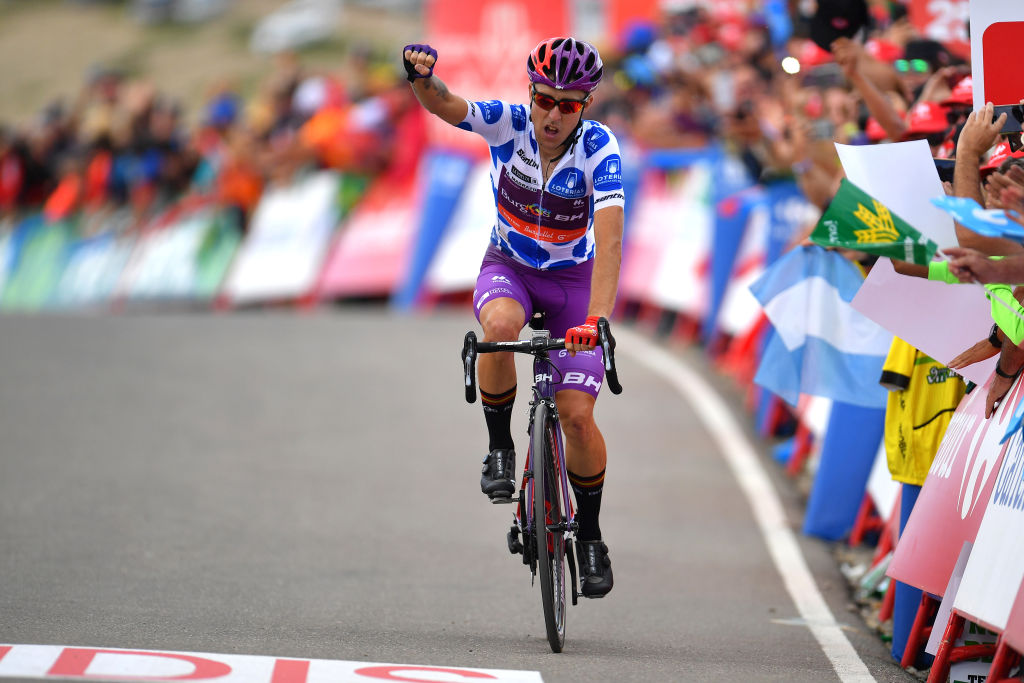
Cyclingnews spoke to the rider who was second on the stage on Javalambre in 2019, Jetse Bol - currently racing the Vuelta with Burgos-BH - on Wednesday about his predictions for the stage.
"You can definitely lose a lot of time on a climb as hard as this one very quickly: I remember we had seven minutes on the bunch at the bottom and less than a minute at the top," Bol said.
"For a break to get away and stick, it's going to need to be very strong. It will all depend on if Remco [Evenepoel - race leader] is really willing to give the lead away and if UAE and Jumbo have anything to do with it, they'll work hard to make sure he keeps it."
Four years ago, there was a big fight for the break, Bol said, before "suddenly things calmed down a bit, I made my move, then Angel bridged across and finally [third breakaway] Jose Herrada."
"We got an advantage of 11 minutes at one point, the kind of gap that's unthinkable these days for a break or in a race like this year's Vuelta when you've got Ineos and UAE and Jumbo and Soudal all working. On top of that, often when one of these big teams is happy with a breakaway, another team isn't and tries to pull it back. So it's much harder for the 'little' teams to get away."
No matter what happens, with nearly 4,000 metres of climbing, the stage will be brutal, Bol says, "because we start near the coast [at Vall d'Uxo] and the road goes up and up and up. We get to 900 metres above sea level even before we start Javalambre. It's up and down all day long."
The start is pretty straightforward and regular, but the higher up you get, the harder it gets,” Madrazo told Belgian newspaper La Dernière Heure on Thursday. “There’s a really tough corner at 800 metres to go where positioning will be vital.”
“Let’s just say you shouldn’t attack at the foot of the mountain. Otherwise, you risk blowing up because the ascent requires a very sustained effort during a good half hour.
“I’d say the most likely scenario is that one team like Jumbo-Visma say, lays down a very sustained pace to try and drop their rivals before one of their riders jumps away three or four kilometres from the finish.”
Madrazo told La Dernière Heure he thinks the most likely option will be five or six GC riders finishing together and the stage coming down to a small group sprint like in Andorra on Monday, but he has mixed opinions about which star of the 2023 constellation of Vuelta stars could shine the brightest at the Javalambre observatory.
“I’m not ruling out Jonas Vingegaard (Jumbo-Visma) or Juan Ayuso (UAE Team Emirates),” Madrazo said. “But in my opinion, Remco and Primož Roglič are the big favourites. On a climb like Javalambre, tough though it is, their ability to accelerate in the last few metres could be decisive."
Alasdair Fotheringham has been reporting on cycling since 1991. He has covered every Tour de France since 1992 bar one, as well as numerous other bike races of all shapes and sizes, ranging from the Olympic Games in 2008 to the now sadly defunct Subida a Urkiola hill climb in Spain. As well as working for Cyclingnews, he has also written for The Independent, The Guardian, ProCycling, The Express and Reuters.
Latest on Cyclingnews
-
Peter Stetina takes the microphone for live stream at Santa Vall; Deanna Mayles wins Old Man Winter as former winner Maddie Munro goes off course - Gravel Bits
Meg Fisher, Kristen Legan among Gravel Hall of Fame inductees with Chase Wark taking Community Impact Award, and USA Cycling expands Junior Gravel National Series -
'A real bucket list year' - Recently-retired 15-year road pro Michael Woods launches endurance campaign on gravel at Santa Vall then Unbound Gravel 200
'Being a privateer, as I'm learning now, is a big undertaking' former Canadian road champion sets sights on variety, from Unbound to Ironman and skimo in between -
Premier Tech to sponsor 2026 Montréal Road World Championships with a women's GP Québec and Montréal the next goal for Canadian cycling
Québec-based company invests in cycling again after major European team sponsorships -
Best women’s road bike saddles 2026: Finally, you can sit comfortably on the bike
Our pick of the best women's road bike saddles currently on the market, and how to choose the right one for you

